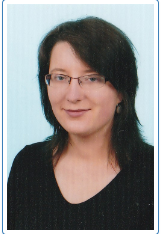Sessions and Tracks
Sessions and Tracks
Track 1: Reproductive health and Medicine
The reproduction of the species is a fundamental property of all living things. Good sexual and reproductive health is a condition of well-being mentally, physically, and social well-being in all matters relating to the reproductive system and to its functions. Reproductive Medicine is a branch of medicine deals with the diagnosis of reproductive issues which include infertility, sexual education, family planning, and in women, ovulation, menstruation, pregnancy, menopause, and many gynaecological disorders.
Related Conferences: Reproductive Conference | Women Infertility Meetings | Gynaecology Congress
Track 2: Reproductive Endocrinology
Reproductive Endocrinology is a sub-speciality of Obstetrics and Gynaecology who trained physicians to provide fertility treatments using assisted reproductive technologies (ART) such as in-vitro fertilization (IVF) and egg freezing. RE and infertility specialists primarily focus on the treatment of infertility also evaluate and diagnose hormonal dysfunctions in females and males outside infertility.
Related Conferences: Reproductive Conference | Women Infertility Meetings | Gynaecology Congress
Track 3: Gynaecology and Obstetrics
Gynaecology is the branch of physiology and medicine which deals with the functions and diseases specific to women and girls, especially those affecting the reproductive system (uterus, ovaries, vagina, and Mammary gland) and diagnoses cancer of the reproductive organs includes vagina, cervix, uterus, ovaries, and fallopian tubes. Obstetrics specifically deals with the wellness of the pregnant woman and her baby. Gynaecologist may be able to treat some areas of infertility. Most OB/GYNs can prescribe dependable fertility medications like clomiphene citrate (Clomid) to help regulate ovulation.
Related Conferences: Reproductive Conference | Women Infertility Meetings | Gynaecology Congress
Track 4: Fertility & Infertility
Infertility is a term used to describe the inability of a couple to get pregnant or the inability of a woman to carry a pregnancy after 12 months of regular sexual intercourse without the use of birth control. Fertility drugs regulate or stimulate ovulation. Fertility drugs are the main treatment for women who are infertile due to ovulation disorders and it improves fertility. Other women may need several different types of treatment to achieve pregnancy can likewise be treated with ARTs.
Related Conferences: Reproductive Conference | Women Infertility Meetings | Gynaecology Congress
Track 5: Female Infertility
Female Infertility is caused by many sources, including nutrition, diseases, and other malformations of the uterus. Female infertility factors contribute to approximately 50% of all infertility cases, and its alone accounts for approximately one-third of all infertility cases. The most common causes of female infertility include problems with ovulation, damage to fallopian tubes or uterus, or problems with the cervix. It affects an estimated 48 million women, with the highest prevalence of infertility affecting people in South Asia, Sub-Saharan Africa, Middle East, and Central/Eastern Europe and Central Asia.
Related Conferences: Reproductive Conference | Women Infertility Meetings | Gynaecology Congress
Track 6: Male Reproductive Cancers and Infertility
Reproductive cancers in men can be found in the testicles, penis and prostate gland and it causes risk to the male population. Prostate cancer is the most common non skin cancer in the United States, Testicular cancer is the most common solid malignancy affecting men ages 15 to 35, and Penile cancer comprises 20% of cancers in men in Asia, South America and Africa. Reproductive dysfunction and malignancies related to the male reproductive system also deals with a serious health concern.
Related Conferences: Reproductive Conference | Women Infertility Meetings | Gynaecology Congress
Track 7: Endometriosis and Infertility
Endometriosis is a painful disorder in which tissue that normally lines the inside of the uterus and the endometrium grows outside the uterus. Endometriosis is usually found in the lower abdomen or pelvis, ovaries, fallopian tubes, and tissue around the uterus and ovaries; however, in rare cases it may also occur in other parts of the body. The main symptoms are lower abdominal pain, pain with periods, pelvic pain and infertility. About 30% to 40% of women with endometriosis have some trouble conceiving and infertility is common with stage IV endometriosis. Several different treatment options can help manage the symptoms and improve the chances of getting pregnant.
Related Conferences: Reproductive Conference | Women Infertility Meetings | Gynaecology Congress
Track 8: Polycystic Ovary Syndrome
Polycystic ovary syndrome is a hormonal disorder that affects millions of women of reproductive age. The hormones that play a role in women with PCOS produce more amounts of male hormones which are called Androgen and decrease in secretion of Progesterone and Insulin hormone. PCOS contribute to long-term health problems like heart disease and diabetes. It is the most frequently occurring endocrine disorder among women between the ages of 18 and 44. About 2% to 20% of this age group is affected by this. It is considered one of the main causes of poor fertility.
Related Conferences: Reproductive Conference | Women Infertility Meetings | Gynaecology Congress
Track 9: Sexually Transmitted Diseases
Sexually Transmitted diseases are also known as venereal diseases (VD) or sexually transmitted infections (STIs) which spread from one person to another through sexual intercourse, by semen, blood during sexual activity, vaginal secretions, use of unsterilized drug needles, from mother to infant during childbirth and blood transfusions.
Symptoms of this disease include penile discharge, vaginal discharge, ulcers on or around the genitals, and pelvic pain. Each year, there are an estimated 357 million new infections with 1 of 4 STIs: gonorrhoea, chlamydia, syphilis and trichomoniasis. Drug resistance, especially for gonorrhoea, is a major threat to reducing the impact of STIs globally. Antibiotics can treat STDs caused by bacteria, yeast, or parasites and also safer sex practices decrease the risk.
Related Conferences: Reproductive Conference | Women Infertility Meetings | Gynaecology Congress
Track 10: Advances in In-vitro Fertilization
To cure infertility many treatments have been available with different success rates. They includes fertility drugs, intrauterine insemination (IUI), in vitro fertilization (IVF), intracytoplasmic sperm injection (ICSI), donor insemination (DI), egg (or embryo) donation and surrogacy. Recent advances or several exciting developments are enhancing the success rate of In-vitro Fertilization which goes through Genetic disease screening, Single-embryo transfer, frozen embryos and new medications.
Related Conferences: Reproductive Conference | Women Infertility Meetings | Gynaecology Congress
Track 11: Assisted Reproductive Technology (ART) and IVF
ART refers to treatments and procedures that aim to assist the couple in achieving pregnancy. The methods for infertility treatment like surrogacy, artificial insemination, in vitro fertilization comes under assisted reproductive techniques (ART). This infertility treatment may include intracytoplasmic sperm injection (ICSI), cryopreservation of gametes or embryos, and/or may involve the use of fertility medication. ART refers to the manipulation of eggs, sperm and embryos outside the body in order to success in a healthy pregnancy. This complex protocol may be an option for people who have already gone through various infertility treatments. The popular destination countries for ART are the USA, UK, Sweden, Canada, Israel, New Zealand, Germany, and Jordan.
Related Conferences: Reproductive Conference | Women Infertility Meetings | Gynaecology Congress
Track 12: IUI and IVF
The most commonly used fertility treatments are intrauterine insemination (IUI) and in vitro fertilization (IVF). IUI can be an excellent first course of treatment for many couples depending on their circumstances and diagnosis. IUI is a procedure that involves placing sperm directly into the uterus in which helps a higher concentration of healthy sperm gets will encounter the egg for increasing the chances of conception. Women, who have failed IUI cycles, advanced blocked fallopian tubes or endometriosis, IVF is typically the best treatment option with the highest chance of success.
Related Conferences: Reproductive Conference | Women Infertility Meetings | Gynaecology Congress
Track 13: IVF Treatment
In Vitro Fertilization (IVF) is the process of collecting eggs from the female partner and sperm from the male partner and fertilizing them in the Embryology Laboratory. The zygote goes through embryo culture for a period of 2–6 days, and is then implanted into the woman's uterus, for a successful pregnancy. To increase chances of fertilization, a single sperm is injected into each of the retrieved eggs using a precision needle in a process which is called Intra-Cytoplasmic Sperm Injection (ICSI). IVF is a more expensive and complex technique only about 5% of infertility couples goes for it.
Related Conferences: Reproductive Conference | Women Infertility Meetings | Gynaecology Congress
Track 14: Embryo Culture
Most of the embryo culture media used in early human IVF was based upon media that were successfully used in animal embryo culture. The goal of embryo culture in an assisted reproductive technique (ART) is to improve the quality of embryos developing inside the laboratory under aseptic conditions on a nutrient medium. The male semen specimen allows fertilizing with the retrieval eggs in a petri dish which contains a culture media and incubated overnight under examination in vitro. It is a critical stage during IVF and requires several steps to ensure a successful IVF cycle.
Related Conferences: Reproductive Conference | Women Infertility Meetings | Gynaecology Congress
Track 15: Embryo Development
If the sperm fertilises the egg, it becomes an embryo. The male semen specimen allows fertilizing with the retrieval eggs in a petri dish which contains a culture media and incubated overnight where the conditions for growth and embryo development are perfect. The incubated embryos go through the cell division process which is morula, cleavage and then blastocyst formation occurs. In blastocyst stage implanting embryos in to the infertile uterus boost the chances of pregnancy. After the successful of embryo development, it transfers into the female uterus through the embryo transfer process.
Related Conferences: Reproductive Conference | Women Infertility Meetings | Gynaecology Congress
Track 16: Embryo transfer
Developing a life move is a straightforward system that follows in vitro treatment (IVF) and is frequently considered the least complex and last advance of the in vitro preparation process. The target of developing a life move is to encourage origination following treatment from the in vitro preparation strategy. The process is usually pain-free and rarely requires any sedatives.
Related Conferences: Reproductive Conference | Women Infertility Meetings | Gynaecology Congress
Track 17: Risks associated with in vitro fertilization
IVF is a strategy for helped multiplication wherein a man's sperm and a lady's eggs are consolidated outside of the body in a petri dish. At least one prepared eggs (incipient organisms) might be moved into the lady's uterus, where they may embed in the uterine covering and create. Genuine confusions from IVF medications and systems are uncommon. Similarly as with every therapeutic treatment, be that as it may, there are a few dangers. This archive talks about the most widely recognized dangers. Normally, injectable richness drugs (gonadotropins) are utilized for an IVF cycle. These meds help invigorate various follicles with eggs to develop in the ovaries. An increasingly point by point exchange of fruitfulness meds can be found in the ASRM booklet, Medications for inciting ovulation.
Related Conferences: Reproductive Conference | Women Infertility Meetings | Gynaecology Congress





